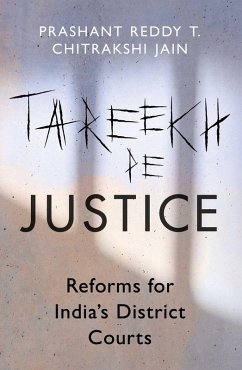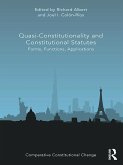One of the biggest failures of the Indian state since it gave itself a new Constitution in 1950 has been its inability to deliver fair and timely justice to its citizens. Tareekh Pe Justice: Reforms for India's District Courts conducts a deep dive into the dysfunction plaguing the district judiciary. These courts are the only layer of the judiciary that operate in every district of the country. Of the three tiers of the Indian justice system, the district courts hear the largest number of cases and are the first point of contact for most Indians seeking justice. Traditionally, the debate on judicial reforms in India has been framed by the judiciary in terms of resources, be it the number of judges or funding for the judiciary. In this book, the authors attempt to reframe the issue by pointing instead to the institutional factors that have created a chilling atmosphere for the judges of the district judiciary, hampering their ability to deliver fearless, swift and decisive justice. The authors also point to a litany of problems within the higher judiciary upon whom falls the responsibility of administering the district courts. This includes a failure to publish accurate judicial statistics, an opaque decision-making process, a poorly conceptualized digitization project that has gobbled up more than Rs 2,000 crore and reckless judicial activism that has often resulted in half-baked judicial reforms. Lastly, the authors propose three big ideas to fundamentally rethink the justice system. These ideas include redesigning the constitutional architecture of the Indian judiciary, bringing back citizens into the courtrooms via juries and resisting dangerous populist demands that seek the decimation of procedural and evidentiary safeguards in the law. These are reforms that can transform the efficiency of the district courts while also restoring public trust in the Indian judiciary and the rule of law in India.
Dieser Download kann aus rechtlichen Gründen nur mit Rechnungsadresse in A, B, BG, CY, CZ, D, DK, EW, E, FIN, F, GR, HR, H, I, LT, L, LR, M, NL, PL, P, R, S, SLO, SK ausgeliefert werden.









